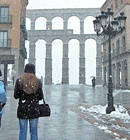All Nonfiction
- Bullying
- Books
- Academic
- Author Interviews
- Celebrity interviews
- College Articles
- College Essays
- Educator of the Year
- Heroes
- Interviews
- Memoir
- Personal Experience
- Sports
- Travel & Culture
All Opinions
- Bullying
- Current Events / Politics
- Discrimination
- Drugs / Alcohol / Smoking
- Entertainment / Celebrities
- Environment
- Love / Relationships
- Movies / Music / TV
- Pop Culture / Trends
- School / College
- Social Issues / Civics
- Spirituality / Religion
- Sports / Hobbies
All Hot Topics
- Bullying
- Community Service
- Environment
- Health
- Letters to the Editor
- Pride & Prejudice
- What Matters
- Back
Summer Guide
- Program Links
- Program Reviews
- Back
College Guide
- College Links
- College Reviews
- College Essays
- College Articles
- Back
Behold the Dreamers: A Comparison Between Two Families
Behold the Dreamers is a novel published in 2016, written by African American writer, Imbolo Mbue. Set in New York City, the novel recounts the experience of a Cameroonian family, Jende Jonga, Neni Jonga, and their children, who gradually give up their dream of becoming American citizens after a series of events. Over the course of the story, at times Jende works for a wealthy white family, the Edwardses. Coming from two completely different backgrounds, the two families are so distinct that I think it is worth finding out what causes these differences.
The first thing I noticed that differs among them is their education. Clark Edwards, who graduated from Stanford University, easily got a job on Wall Street and thus is constantly earning a sizeable amount of income that not merely supports the family, but also enables the family to live a luxurious life. They own several apartments and houses, both at the center of New York City and in places for holidays. Mrs. Edwards has so much clothing from designer brands that she is willing to easily send them to people in need. The younger child goes to piano lessons and a good school. In contrast, the Jongas’ situation is far from ideal. Jende Jonga did not even finish high school but has to come to America and works at several different places. Neni Jonga came to America to gain a good education so that she can work at a pharmacy. This specific discrepancy between them stresses the importance of education, as it could change a person’s life.
Another aspect to the novel I found noteworthy is the difference in their children, who grow up in totally different backgrounds. Vince Edward, the older son of Clark, is so disobedient that he refuses every opportunity his parents give him but chooses to live in India to start his own business. His parents are disappointed and angry but can do nothing to change his mind. His decision is probably due to his upbringing in such a privileged environment; he has the curiosity to explore a different part of the world and have a different experience. In comparison, the Jongas treat their child in a totally different way. Neni yells at her boy, Liomi, merely because his teacher says he laughs with another kid at school. For them, without American passports, they have no choice but to work hard, for they know that it is the only way to potentially change their lives in the future. Knowing this, Liomi must apologize. The difference in how Vince and Liomi behave shows how much the two families differ from each other.
The theme that money cannot be exchanged for happiness is also present throughout the book, as the standards of living between the two families differ greatly. For a poor family like the Jongas, their primary concern is money: whether they have a decent job, can afford food, and if there is enough tuition for Neni. For a wealthy family like the Edwardses, by rights, they have nothing to worry about. However, there are still various reasons that contribute to the breaking-apart of the family: Clark commits adultery with another woman in the hotel, and his wife, Cindy, consumes drugs due to her disappointment. Perhaps it’s precisely because they spend so much time making money and socializing, they ignore the importance of accompanying their family, and thus their lives are still unhappy. The Jongas family always thinks that they will become happy when they gain American passports and become rich, but they don’t realize the drawbacks of that.
These radical discrepancies between the two families give rise to their different destinies. Nevertheless, both families experience a loss but resolve their dilemma. The Jongas go back to their hometown, Limbe, ready to start a successful life; in the Edwards family, even though Cindy dies at the end and Clark loses his job, the family moves out of the busy New York City lifestyle and gets much closer. In my opinion, this is surely a good resolution to both families, especially at a time when economics worsens significantly. For me, an insight I gained from this book is that you never know the torture that other people are experiencing. It might appear that someone is having the happiest life imaginable, but in reality, they might be having a really hard time. The world will become better if people can treat others with kind-heartedness and sympathy.

Similar Articles
JOIN THE DISCUSSION
This article has 0 comments.
